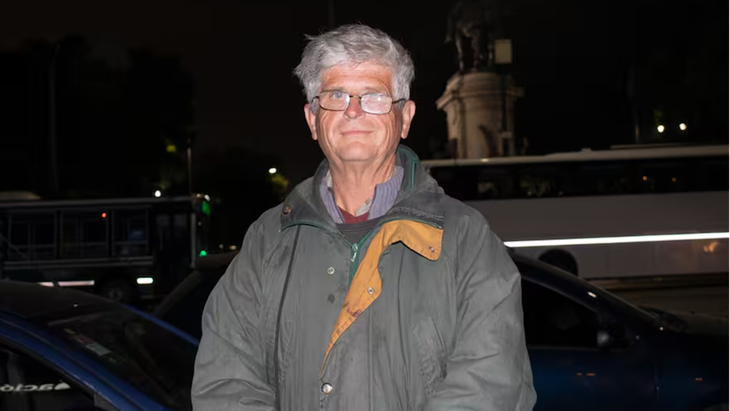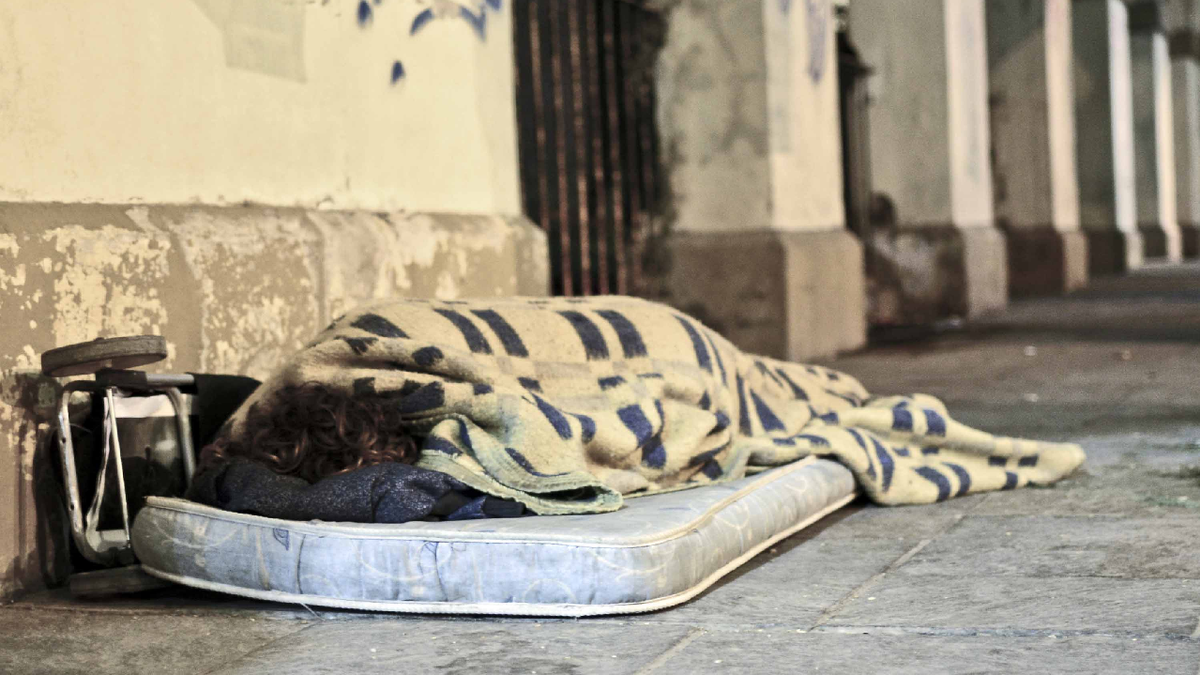He is 60 years old and worked for decades in a bank and in an agro-export company, but a misfortune left him on the street.
Pablo Tevilin He is a 60-year-old man who was an employee of an international bank and an agro-export company. He has a degree in business administration, his native language is English, but he has lived in Argentina since he was 6 years old and speaks Spanish. His grandparents on his paternal side are from England, while his maternal side is of Irish origin.
The content you want to access is exclusive to subscribers.
A family tragedy caused him to lose everything. When her mother fell ill with cancer, the treatment and medications meant money for which she had to sell her house and other possessions to be able to afford it. Furthermore, the bank he worked for left the country, so he was unemployed and at his age, it is very difficult for him to find a job.


Pablo Tevilin

Why Pablo Tevilín was left homeless
However, he speaks calmly, in a slow tone, and celebrates that there are people on the street who have shown solidarity with him to be able to face this situation in a more bearable way. The only thing he wants is a stable job that allows him to pay rent. He worked in a foreign bank, which later left the country. Then, in an agro-export company and finally in a computer company.
He was doing very well until his mother fell ill. They detected a clot in his lung. She had very expensive private health coverage that at one point she couldn’t afford anymore. He ended up selling his house and he went to live with his mother, renting. During this process with doctors and treatments, Pablo also lost his job. At the end of 2023 his mother died and that was the blow that finally brought him down.
After that he stayed on the street. His age makes it impossible for him to get a job, and he receives a non-contributory pension that they began to pay him in two installments, making it impossible for him to afford rent.
What is life on the street like?
According to him, the first night outdoors was somewhat unpleasant. However, he had the support of the same people on the street. During his discomfort, the young people helped him by giving him blankets, they even kept fewer coats so that he wouldn’t get cold. Furthermore, he explains that the more he is on the street, the more difficult it is to get out. And it is even worse for those who suffer from drug or alcohol addictions.
On the other hand, he says that there is fear on the street, but not if you find a “rogue” group. The groups protect each other, they are like a clan. If one is sick, everyone “holds it together” and they get what they need, food or medicine. After a month and a half of being on the street, Pablo already had a routine: Sleeping in an ATM, in San Isidro or in the capital. Breakfast at 8 in the cathedral of San Fernando, lunch in the dining room in Barracas de Belgrano and at sunset, look for cardboard so that the ground is not so cold
Source: Ambito




